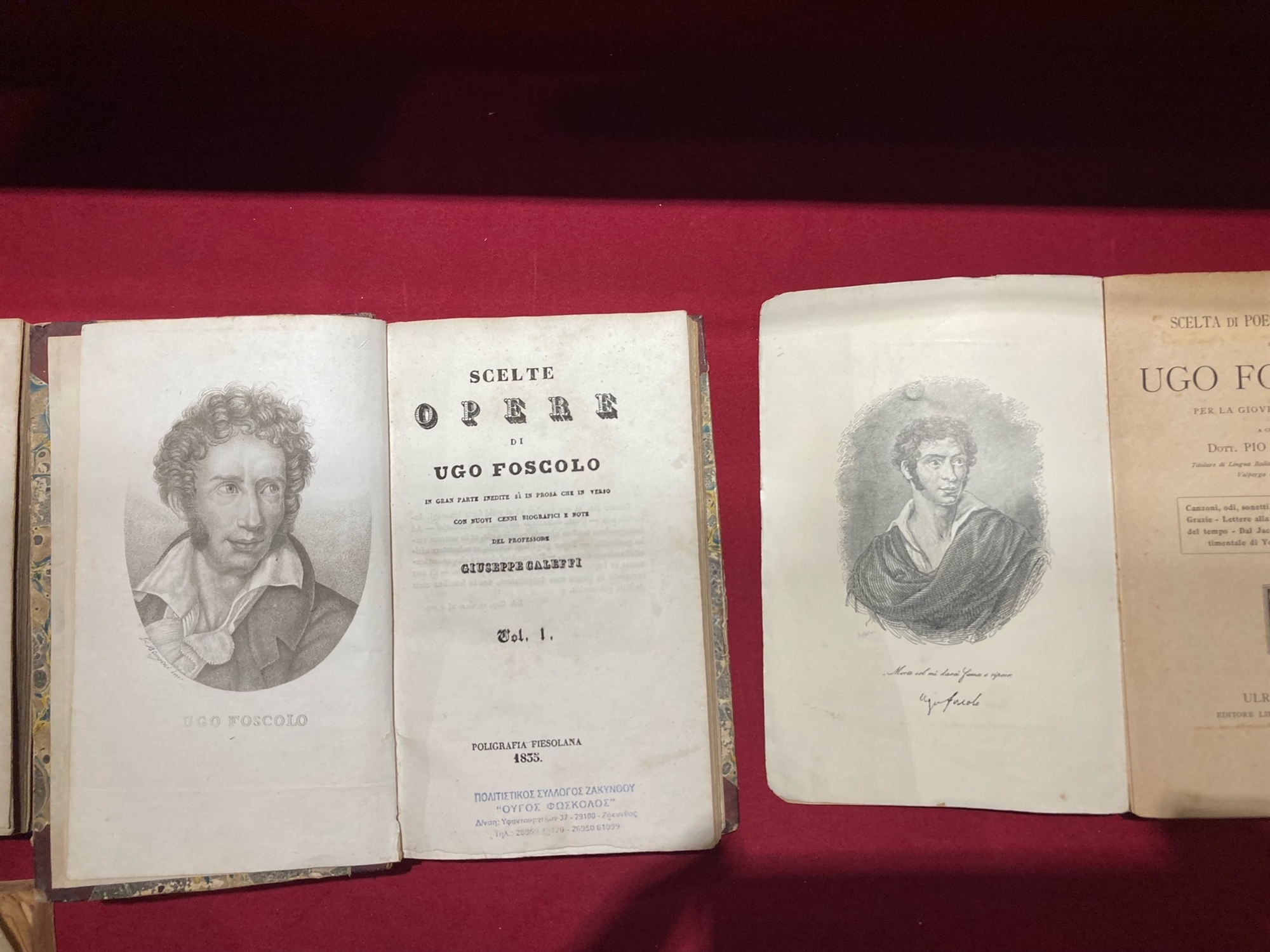
His last residence is in Santa Croce, Florence, next to Dante and Michelangelo. At a memorial service held in his hometown of Zakynthos, two months after his death, Dionysios Solomos delivered a eulogy. But even during his lifetime, the poet Hugo Foscolo (1778-1827) embodied the fusion of the cultures of Italy and Greece. Philippos Sinethos, president of the Ugos Foskolos Cultural Association of Zakynthos, confirms this, recalling: “All of us who live in Zakynthos have known about the scientists of the island since childhood. Our teachers told us that Zakynthos was the birthplace of poets, referring to Solomon, Calvos, and also Nikolaos-Ugos Foskolos, who was the only one who wrote in Italian. He was of Italian descent on his father’s side and received an Italian education, although he was Greek at heart.”
However, Greece was not always interested in even half-hearted claims of the poet. Or he didn’t have the ability to do so. When, in 1871, says Philippos Sinetes, the Italians demanded and removed the body of Ugos Foskolos from London, where he was buried, the people of Zakynthos petitioned the Greek government to do something similar, but to no avail. In 1886, at the initiative of the local authorities, the poet’s house was bought and the Foscoliani library was set up in it. In 1927, a hundred years after his death, brilliant celebrations were organized in Zakynthos, and the Athenian intelligentsia of the time began to recognize Foscolo’s love for Greece and his European influence. In 1953, his house was destroyed by an earthquake, in 1970 a sculpture of Ioannis Vitsaris was erected on the site, and in 2009 the Ugos Foskolos Association was established with the aim of building the house from scratch as a museum. Finally, the house was completed in 2015 during the reconstruction of the architect Dionisy Ziv, and next Saturday at 19:00 in the Old Parliament, his museum collections will be presented, edited by the Cultural Association of Zakynthos. “We want to offer the house and its contents to Greek society as proof that the Zakynthians work in accordance with their traditions and honor the memory of the great figures of their land,” says Philippos Sinetes. According to him, the museum of Ugos Foskolos will be completely ready by Easter with the help of the municipality and the region, which financed it from European funds. Some human resource gaps have yet to be filled as the museum is currently open to the public by appointment only.

Collections
During his lifetime, the poet embodied the fusion of the cultures of Italy and Greece.
What can be seen in his collections, given that the poet died penniless? The first collection includes original versions of his works, periodicals, as well as copies of the objects that bring it to life. The second consists of contemporary paintings inspired by the life of Ugos Foskolos, created by Maria Rosea, Dionysis Mataragas, Thalia Xenakis and others.
“The work of Babis Pilarinos,” says Philipps Sinetos, “is based on an event celebrated by the poet. In those years, every Good Friday, the Jewish community of Zakynthos was excluded into a special zone, since fanatical Christians considered them guilty of the death of Jesus. The custom was preserved for centuries, but one day little Ugos Foskolos, together with his friends, tried to break down the door that restricted the Jews. The event shows his rebelliousness, which he also learned from the messages of his teacher, the clergyman Antonio Martelau, who was a supporter of the French Revolution.
Foscolo’s works, such as the poem “Tombs” or “Ode to Napoleon Bonaparte”, are also inspired by the movements of the time, such as the unification of Italy (Risorgimento). At the Saturday event, Prof. Gerasimos Zoras will talk about them, while Philippos Sinetos and the President of the Zakynthos Union, Dionysis Konithopoulos, will talk about the efforts to promote the Foskolos Museum and the historical character of the island.
“His great legacy,” concludes Philip the Wise, “was his relationship with the revolutionary movements that sprang from the French Revolution, as well as the messages he gave in his writings for the unification of Italy, which were deeply influenced by the ancient Greek secretariat.” .
Source: Kathimerini
Ashley Bailey is a talented author and journalist known for her writing on trending topics. Currently working at 247 news reel, she brings readers fresh perspectives on current issues. With her well-researched and thought-provoking articles, she captures the zeitgeist and stays ahead of the latest trends. Ashley’s writing is a must-read for anyone interested in staying up-to-date with the latest developments.